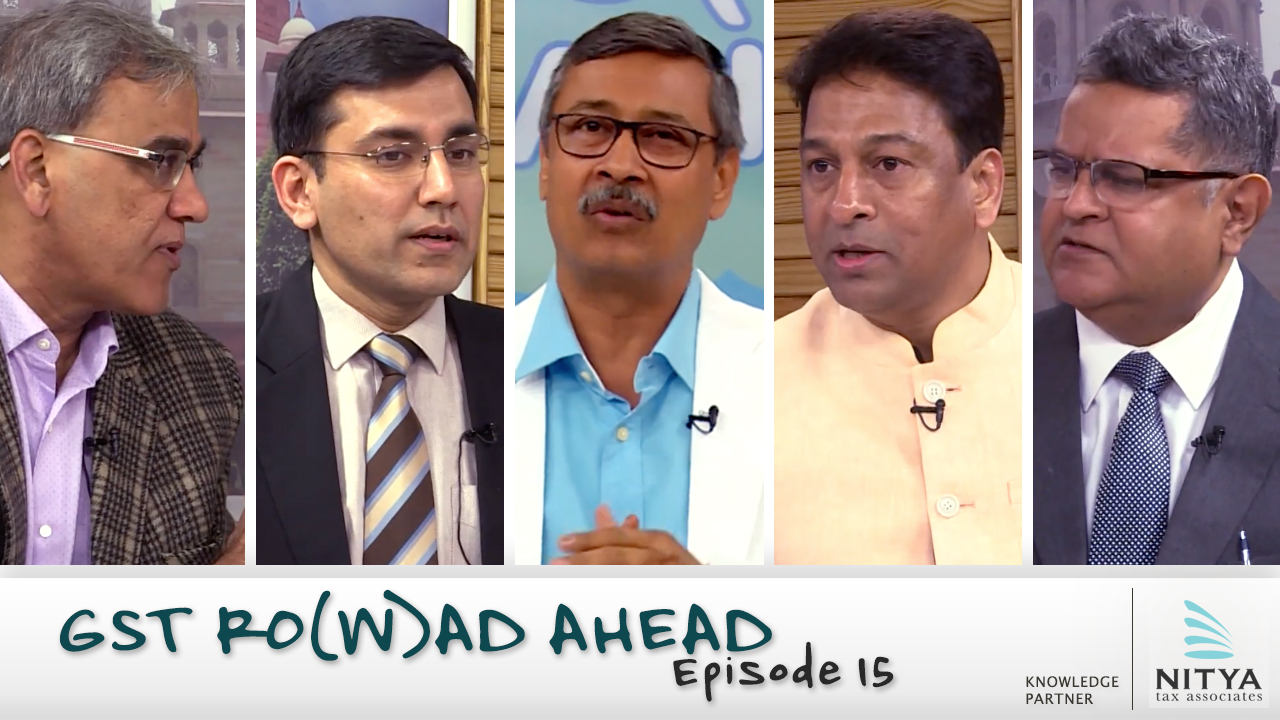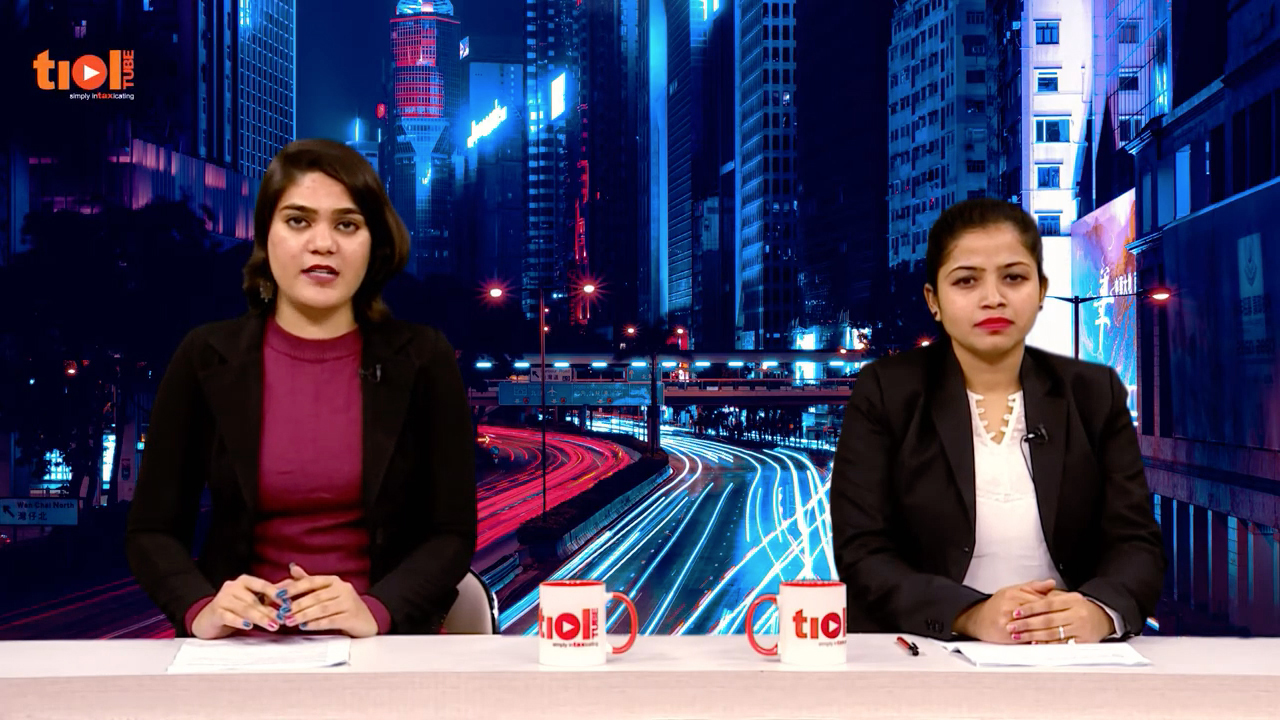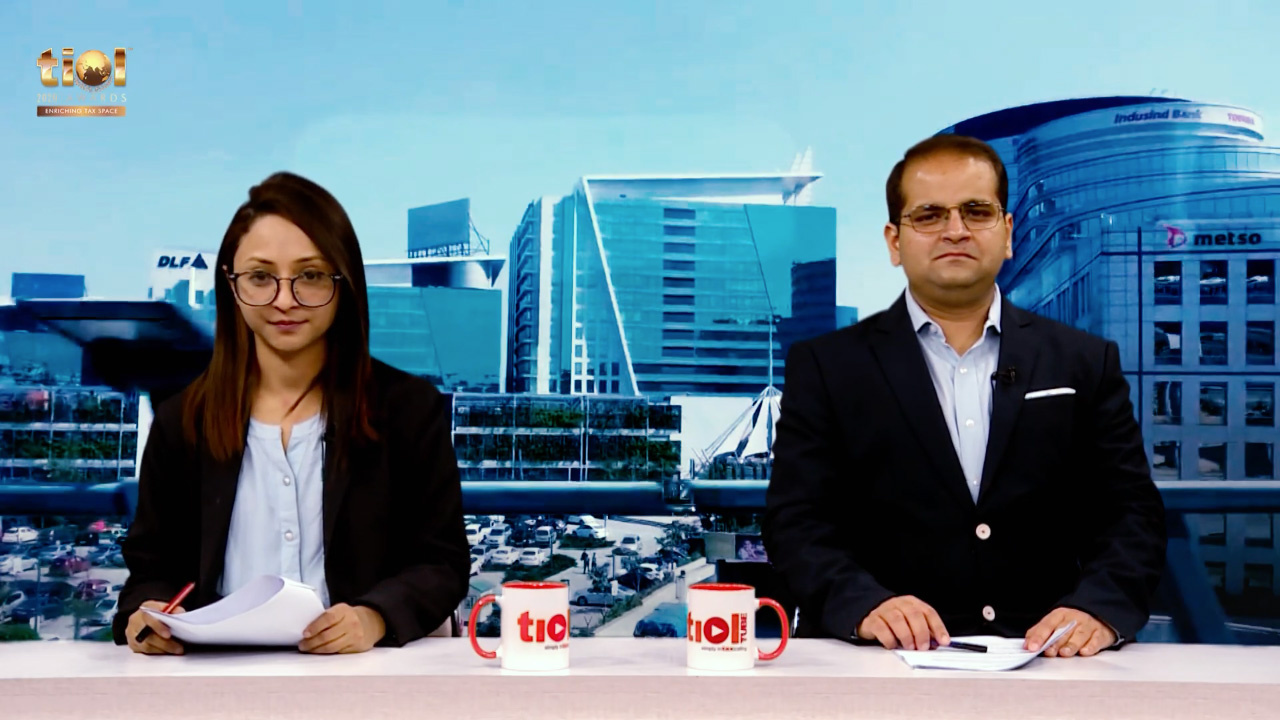|
SERVICE TAX
2020-TIOL-803-CESTAT-DEL
Rajnandini Constructions Vs CCE
ST - The appellant is providing Renting of Immovable Property services, the department has denied availment of Cenvat credit qua the services received by appellant as that of commercial construction, club membership fee and maintenance charges during the period 2007-08 on the ground that since none of the services are the input services and the appellant cannot avail Cenvat credit thereupon - As regards to commercial construction, the premises for which commercial construction services were received were let out by the appellant for providing the services of renting of immovable property - These admissions clarify had there been no constructed building there would have been no possibility for any service of being rented out to be provided by the appellant - Thus, it becomes clear that the services of commercial construction as were received by the appellant for providing the output service have a direct nexus to each other - As regards to club membership fee, no nexus has been established between the availment of Club Membership and the output service of of the appellant i.e. Renting of Immovable Property - Hence, the Commissioner has committed no error while denying the Cenvat credit availed for the said services and confirming the recovery thereof - As regards to maintenance charges, the department has alleged the said services to have been received prior to 01.06.2007 when those services were not taxable - Perusal of the order of the adjudicating authority shows that the Cenvat credit on Maintenance and Repair Services has been denied for want of nexus of the said services to the output service provided by the appellant - In absence of the said Bill but in view of the acknowledgement that the Maintenance and Repair Services were received for the premises which have been rented out by the appellant and also that the Bill is for the date when the entry became taxable, the Maintenance and Repair Services are also clearly inclusive in the definition of input services and the appellant has rightly availed the Cenvat credit thereof - Finally, coming to the issue of limitation, it stands clear that the SCN since being issued beyond a delay of three years - The same is held to be barred by time - Consequent thereto irrespective that the club membership fee is held to not to be an input service to avail the Cenvat credit by the appellant but the said demand also stands set aside being SCN barred by time: CESTAT
- Appeal allowed: DELHI CESTAT
CENTRAL EXCISE
2020-TIOL-801-CESTAT-AHM
Rachna Art Prints Pvt Ltd Vs CCE & ST
CX - SCN was issued to the appellant for wrong availment of cenvat credit amounting to Rs.33,90,576/- on the various invoices which were allegedly issued by fake/fictitious and non existing dealers as per alert circular dated 22.09.2005 issued by the Commissioner, Central Excise & Customs, Surat I - Appellant paid the amount of Rs 27,57,221/- against the amount of cenvat credit availed wrongly and Rs.3,93,139/- as interest on such amount voluntarily - demand was confirmed by the adjudicating authority and the amounts paid were appropriated - Commissioner(A) partially allowed the appeal under which only an amount of Rs. 1,49,030/- was confirmed and demand of balance amount was set aside - in Revenue appeal, the matter was remanded to the original authority by Tribunal - consequently, appellant filed a refund claim in respect of the amount of Rs 27,57,221/- which was paid by them but the adjudicating authority rejected the claim and so did the Commissioner(A) - aggrieved, assessee is before the CESTAT.
Held: Limited issue in the present case involved is whether the refund of cenvat amount and interest thereon paid by the appellant, before issuance of show cause notice proposing demand of said amount, should be treated as deposit and not duty and consequently whether time limit prescribed under section 11B shall apply or otherwise - said amount was appropriated by the adjudicating authority in the adjudication order against the confirmed demand , therefore, firstly the amount paid by the appellant was clearly towards the liability of cenvat credit demand, secondly when the said payment was appropriated against the demand, there is no doubt that the said payment has taken colour of duty - although Bench agrees that since the payment was made on insistence of the department such payment should be treated under protest, the fact is the protest continued till the date of remand ordered by the Tribunal - refund itself has arisen after the tribunal has passed remand order dated 17.10.2011, which is relevant date for the refund under section 11B of CEA, 1944 - After this date of remand order '"Under protest", if any, stands vacated, therefore, time limit of one year shall be reckoned from 17.10.2011 whereas refund claim was filed after almost more than four years hence, the same is clearly time-barred - both the lower authorities have rightly held that the refund is time barred - impugned order is, therefore, upheld and appeal is rejected: CESTAT [para 5.1, 6]
- Appeal rejected: AHMEDABAD CESTAT
2020-TIOL-800-CESTAT-DEL
CCE & CGST Vs APM Industries Ltd
CX - The assessee is engaged in manufacture of polyester yarn and opted for exemption Notfn 30/2004-CE w.e.f. 1st April, 2016 - In compliance to Rule 11 (3) (i) of CCR, 2004, they have reversed the Cenvat Credit attributable to input, input contained in WIP and finished goods in the stock - After reversal of Cenvat Credit, some accumulated balance of CENVAT Credit was available - A SCN was issued proposing the demand of CENVAT Credit which was lying in balance even after aforesaid reversal on the ground that in terms of Rule 11 (3) (ii) the balance, if any, still remaining after reversal of credit on input, input in process and contained in final products - On the plain reading of the Rule 11 (3) (i) (ii), it is clear that as per sub-clause (2), the credit shall be lapsed only if the exemption under the Notification is absolute that means in case of conditional Notification the provision of lapsing of credit will not apply - In view of the judgments in Patodia Filaments Pvt. Ltd. 2019-TIOL-1696-CESTAT-AHM and Kanchan India Ltd., it is settled that after reversal of credit in respect of input, input in process and input contained in final products whatever balance is left shall lapse only when the Notification is unconditional - The impugned order is upheld: CESTAT
- Appeal dismissed: DELHI CESTAT
CUSTOMS
2020-TIOL-802-CESTAT-DEL
Mita India Pvt Ltd Vs Designated Authority
Anti Dumping - The Anti Dumping Appeal was filed by appellant before Tribunal on 23 April 2018 to assail the Notification dated 17 February 2017 - The appellant also filed an application for condoning the delay as Section 9C (2) of CTA, 1975 provides that every appeal under Section 9C (1) of the Act shall be filed within 90 days of the date of order under appeal but the Appellate Tribunal may entertain any appeal after the expiry of the said period of 90 days if it is satisfied that the appellant was prevented by sufficient cause from filing the appeal in time - The only reason given by the appellant for not filing the appeal within the stipulated period is that it was not aware of the addresses of the parties nor documents were made available to them - The request of appellant was specifically considered and rejected by Delhi High Court and this order has attained finality on the dismissal of Special Leave Petition by the Supreme Court - It is, therefore, not open to the appellant to again raise the same plea before Tribunal in application filed for condoning the delay in filing the appeal - Even if the time spent by appellant in Delhi High Court between 31 August 2017 and 6 September 2017 is excluded as also the time spent in Supreme Court in filing the SLP on 6 December 2017 and it dismissal on 19 March 2018 is excluded, only benefit of 103 days can be granted to the appellant - However, the entire period of limitation expired even before the writ-petition was filed by the appellant in the Delhi High Court - Further, it needs to be noticed that the appellant had been paying provisional duty in accordance with preliminary findings that were published in the Gazette on 17 May 2016 - The appellant was, therefore, aware that the anti dumping duty investigation was in process - This was also observed by the Delhi High Court - Though the appellant claimed that it was in the second week of May 2017 that it approached the Designated Authority, but what is seen is that the formal application was filed by appellant only on 27 June, 2017 - The Delhi High Court observed that the appellant had approached to the Designated Authority for documents only to subsequently explain the delay in filing the appeal before the Tribunal - The delay application is, accordingly, rejected: CESTAT
- Appeal dismissed: DELHI CESTAT |
|








